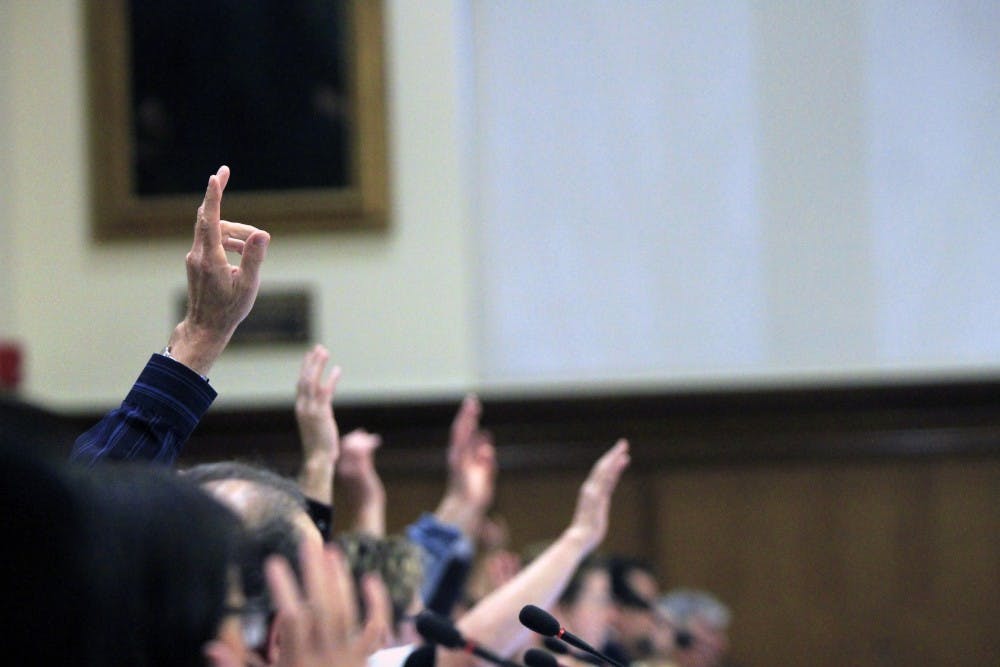The Bloomington Faculty Council is still considering possible names for the title of a third lecturer rank after sending the proposal back to committee in a motion decided by only one vote.
After a motion to create a third lecture rank passed at the March 27 BFC meeting, voting on the proposal to name the third lecturer rank “Teaching Professor” was moved to this week.
The proposal drew intense debate and multiple amendments to the original motion, which forced council members to consider what makes a professor a professor.
“If we don’t all agree, guess what? We’re still colleagues,” said Alan Dennis, chair of the faculty affairs committee.
After discussion and several motions to change the proposed name for the new rank did receive a second, a motion to move the proposal back to committee passed 26 to 25, according to the official count.
Other suggestions for the new title included changing the entire structure of lecturer ranks to be Assistant Teaching Professor, Associate Teaching Professor and Teaching Professor, or only changing the third rank to Senior Lecturer with Distinction.
Fritz Breithaupt, a professor in Germanic Studies, said he thought the intentions of the proposal were well meant, but saw unintended consequences.
“I think it will undermine the prestige of the word professor,” Breithaupt said.
Katie Siek, an associate professor in the School of Informatics, Computing and Engineering said she supported the entire structure of lecturer ranks being changed to Assistant Teaching Professor, Associate Teaching Professor and Teaching Professor.
“Non-Tenure Track faculty often don’t know what to call themselves,” Siek said.
She said it’s confusing when students refer to them as professors when they are not considered professors by tenure-track faculty.
Jonathan Trinidad, a Research Scientist in the Department of Chemistry, read the Oxford English Dictionary definition of the word professor for North America: “Any teacher at a university.”
“Lecturers are professors to everyone, except perhaps tenure track professors,” Trinidad said.
In other business, the first seven of fourteen proposals to the BFC constitution were passed by the council. The amendments were first discussed at its February 20 meeting. The amendments have been updated to reflect concerns from the first discussions.
Most proposed amendments make the language of the constitution more generic so that changes do not need to be made as frequently, or so that the constitution can be in line with how the council actually operates.
All of the amendments being proposed can be accessed through the BFC's agenda, available here.
For example, one section proposed to be amended says the Bloomington Provost will report on the state of the campus in the fall, while Provost Lauren Robel will give her state of the campus speech in the spring this year. The amendment would change the section to say the provost will report on the state of the campus at least once a year.
Proposed amendments need a majority vote from the BFC. Then, the proposed amendments will be announced to all faculty. All faculty on campus will have 15 days to meet as a whole if needed and discuss the proposals before all faculty vote. Again, a majority vote is needed to pass the proposed amendment.



